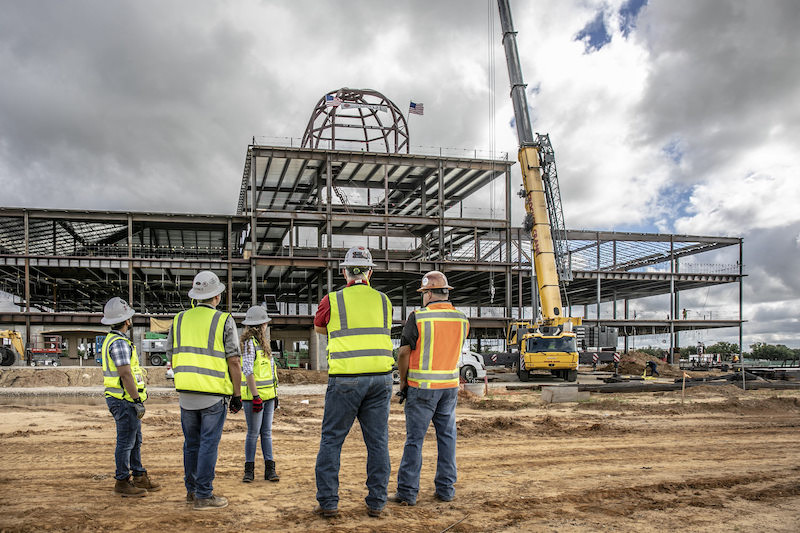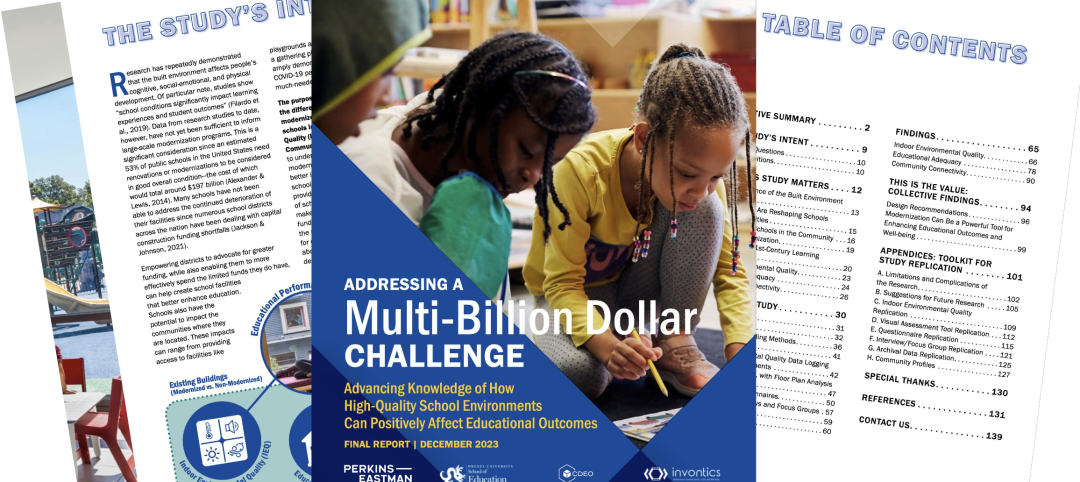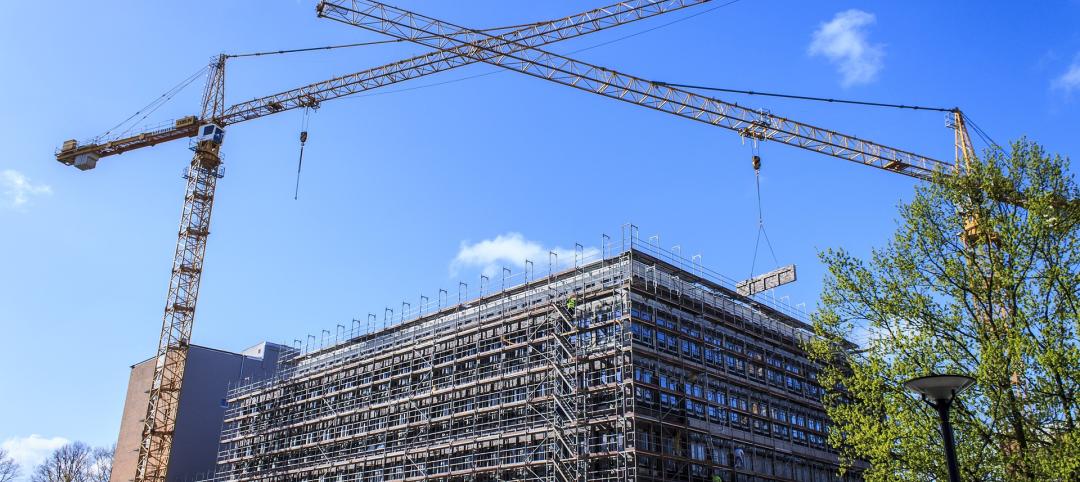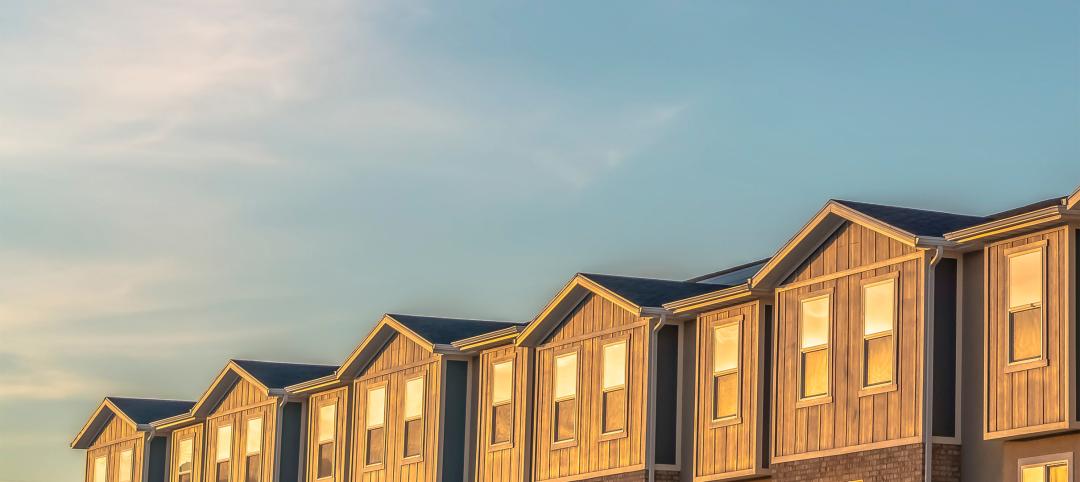The construction industry lost 3,000 jobs between July and August as ongoing declines in nonresidential segments offset a pickup among residential building and remodeling firms, according to an analysis by the Associated General Contractors of America of government data released today. Association officials said their newly released survey shows many contractors are eager to hire but are encountering a lack of qualified applicants and supply-chain delays that are holding back nonresidential employment gains.
“Today’s figures show that nonresidential building and infrastructure contractors are having a hard time recovering from the impact of the pandemic on demand for structures,” said Ken Simonson, the association’s chief economist. “At the same time, our survey finds many contractors have job openings but are experiencing a lack of qualified applicants, shortages of materials and long delivery delays.”
Construction employment in August totaled 7,416,000, a drop of 3,000 from July. Employment among nonresidential firms—comprising heavy and civil engineering construction firms, along with nonresidential building and specialty trade contractors—shrank for the fifth month in a row, by 20,300. In contrast, homebuilders and residential specialty trade contractors added 17,400 workers, the fourth-straight gain.
Despite the job losses for nonresidential construction firms, the association’s annual workforce survey, conducted with Autodesk, found many of its members—nonresidential and multifamily contractors—have unfilled job openings. Ninety percent of the more than 2,100 firms that responded had openings for hourly craft workers, while 62% had openings for salaried employees. Overwhelming percentages of firms with openings reported having a hard time filling positions, including 89% of the companies seeking craft workers and 86% of those looking for salaried employees.
Contractors are facing multiple challenges. Seventy-two percent of survey respondents reported that available job candidates were not qualified. Three-quarters of the firms reported projects were delayed due to longer lead times or shortages of materials, while 57% reported delivery delays.
Association officials called on officials in Washington to address both immediate and long-term needs for the construction industry. They urged lawmakers to finish work on the Senate-passed infrastructure bill and provide more funding for career and technical education programs that will attract and prepare more people for high-paying careers in construction.
“Contractors are eager to hire more workers but they need Washington officials to make sure there is enough funding for vitally needed infrastructure to justify hiring,” said Stephen E. Sandherr, the association’s chief executive officer. “In addition, more federal money should be going into preparing workers to execute these projects.”
Click here for the association’s survey results.
Related Stories
Retail Centers | Apr 4, 2024
Retail design trends: Consumers are looking for wellness in where they shop
Consumers are making lifestyle choices with wellness in mind, which ignites in them a feeling of purpose and a sense of motivation. That’s the conclusion that the architecture and design firm MG2 draws from a survey of 1,182 U.S. adult consumers the firm conducted last December about retail design and what consumers want in healthier shopping experiences.
Market Data | Apr 1, 2024
Nonresidential construction spending dips 1.0% in February, reaches $1.179 trillion
National nonresidential construction spending declined 1.0% in February, according to an Associated Builders and Contractors analysis of data published today by the U.S. Census Bureau. On a seasonally adjusted annualized basis, nonresidential spending totaled $1.179 trillion.
Market Data | Mar 26, 2024
Architecture firm billings see modest easing in February
Architecture firm billings continued to decline in February, with an AIA/Deltek Architecture Billings Index (ABI) score of 49.5 for the month. However, February’s score marks the most modest easing in billings since July 2023 and suggests that the recent slowdown may be receding.
K-12 Schools | Mar 18, 2024
New study shows connections between K-12 school modernizations, improved test scores, graduation rates
Conducted by Drexel University in conjunction with Perkins Eastman, the research study reveals K-12 school modernizations significantly impact key educational indicators, including test scores, graduation rates, and enrollment over time.
MFPRO+ News | Mar 16, 2024
Multifamily rents stable heading into spring 2024
National asking multifamily rents posted their first increase in over seven months in February. The average U.S. asking rent rose $1 to $1,713 in February 2024, up 0.6% year-over-year.
Market Data | Mar 14, 2024
Download BD+C's March 2024 Market Intelligence Report
U.S. construction spending on buildings-related work rose 1.4% in January, but project teams continue to face headwinds related to inflation, interest rates, and supply chain issues, according to Building Design+Construction's March 2024 Market Intelligence Report (free PDF download).
Contractors | Mar 12, 2024
The average U.S. contractor has 8.1 months worth of construction work in the pipeline, as of February 2024
Associated Builders and Contractors reported that its Construction Backlog Indicator declined to 8.1 months in February, according to an ABC member survey conducted Feb. 20 to March 5. The reading is down 1.1 months from February 2023.
Market Data | Mar 6, 2024
Nonresidential construction spending slips 0.4% in January
National nonresidential construction spending decreased 0.4% in January, according to an Associated Builders and Contractors analysis of data published today by the U.S. Census Bureau. On a seasonally adjusted annualized basis, nonresidential spending totaled $1.190 trillion.
Multifamily Housing | Mar 4, 2024
Single-family rentals continue to grow in BTR communities
Single-family rentals are continuing to grow in built-to-rent communities. Both rent and occupancy growth have been strong in recent months while remaining a financially viable option for renters.
MFPRO+ News | Mar 2, 2024
Job gains boost Yardi Matrix National Rent Forecast for 2024
Multifamily asking rents broke the five-month streak of sequential average declines in January, rising 0.07 percent, shows a new special report from Yardi Matrix.

















